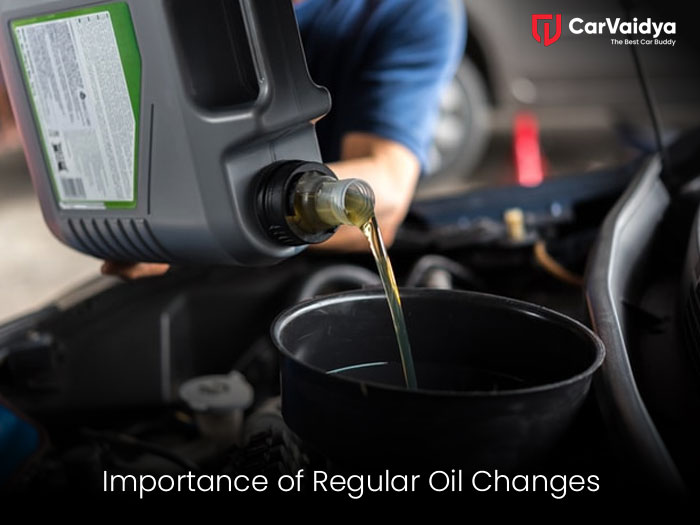Maintaining a vehicle is a responsibility that requires consistent attention to ensure its longevity and performance. Among the numerous maintenance tasks, regular oil changes stand out as one of the most crucial. Engine oil is the lifeblood of your car, and neglecting its regular replacement can lead to significant problems. Here are five reasons why regular oil changes matter for your car's health:
1. Engine Lubrication
The primary function of engine oil is to lubricate the moving parts of the engine. These components include the pistons, crankshaft, camshaft, and other engine internals. Without adequate lubrication, these parts would grind against each other, leading to excessive wear and tear. This friction can cause the engine to overheat and eventually seize, resulting in costly repairs or even the need for a complete engine replacement.
Fresh engine oil provides a thin layer of protection between these moving parts, reducing friction and allowing the engine to operate smoothly. Over time, oil breaks down and loses its viscosity, making it less effective as a lubricant. Regular oil changes ensure that the engine always has high-quality oil, maintaining optimal lubrication and preventing premature wear.
2. Engine Cooling
Beyond lubrication, engine oil plays a crucial role in cooling the engine. As oil circulates through the engine, it absorbs heat from the various components and helps dissipate it. This cooling effect is essential for preventing the engine from overheating, which can cause significant damage.
As oil ages, it becomes less effective at absorbing heat due to the buildup of contaminants and the breakdown of its chemical properties. Dirty oil can no longer manage heat efficiently, leading to higher engine temperatures and an increased risk of overheating. Regular oil changes help maintain the oil's cooling properties, ensuring that the engine remains at a safe operating temperature.
3. Engine Cleanliness
Over time, engines accumulate dirt, debris, and sludge from the breakdown of oil and the combustion process. These contaminants can clog up the engine's internal components, reducing its efficiency and potentially causing damage. Regular oil changes help keep the engine clean by removing these impurities before they can build up and cause problems.
Fresh oil contains detergents and additives that help break down and remove sludge and deposits, keeping the engine clean and running smoothly. By regularly changing the oil, you ensure that these cleaning agents are always present, preventing the buildup of harmful contaminants and extending the life of your engine.
4. Improved Fuel Efficiency
An engine that runs efficiently uses fuel more effectively. When oil ages and becomes contaminated, it thickens and loses its ability to lubricate properly. This increased friction forces the engine to work harder, consuming more fuel to maintain the same level of performance.
Regular oil changes help maintain proper engine lubrication, reducing friction and allowing the engine to operate more efficiently. This improved efficiency translates to better fuel economy, saving you money at the pump. Additionally, a well-maintained engine produces fewer emissions, contributing to a cleaner environment.
5. Extended Engine Life
One of the most significant benefits of regular oil changes is the potential to extend the life of your engine. An engine that is properly lubricated and kept clean runs more smoothly and experiences less wear and tear over time. This reduces the likelihood of major mechanical failures and costly repairs.
By adhering to a regular oil change schedule, you ensure that your engine remains in good health for as long as possible. This proactive maintenance approach can help you avoid expensive repairs, increase the resale value of your vehicle, and give you peace of mind knowing that your car is running at its best.
Conclusion
In summary, regular oil changes are essential for maintaining your car’s health and performance. By ensuring proper lubrication, effective cooling, engine cleanliness, improved fuel efficiency, and extended engine life, regular oil changes provide a multitude of benefits. Neglecting this simple yet crucial maintenance task can lead to significant problems and costly repairs. To keep your vehicle running smoothly and efficiently, make regular oil changes a priority.
You Can Read Some Other Articles
Avoide These Three Mistakes in Electric Cars and SUVS
Understanding the Benefits of Maintaining a Car Service History
Unlocking the best car loan interest rates of 2023 in India

